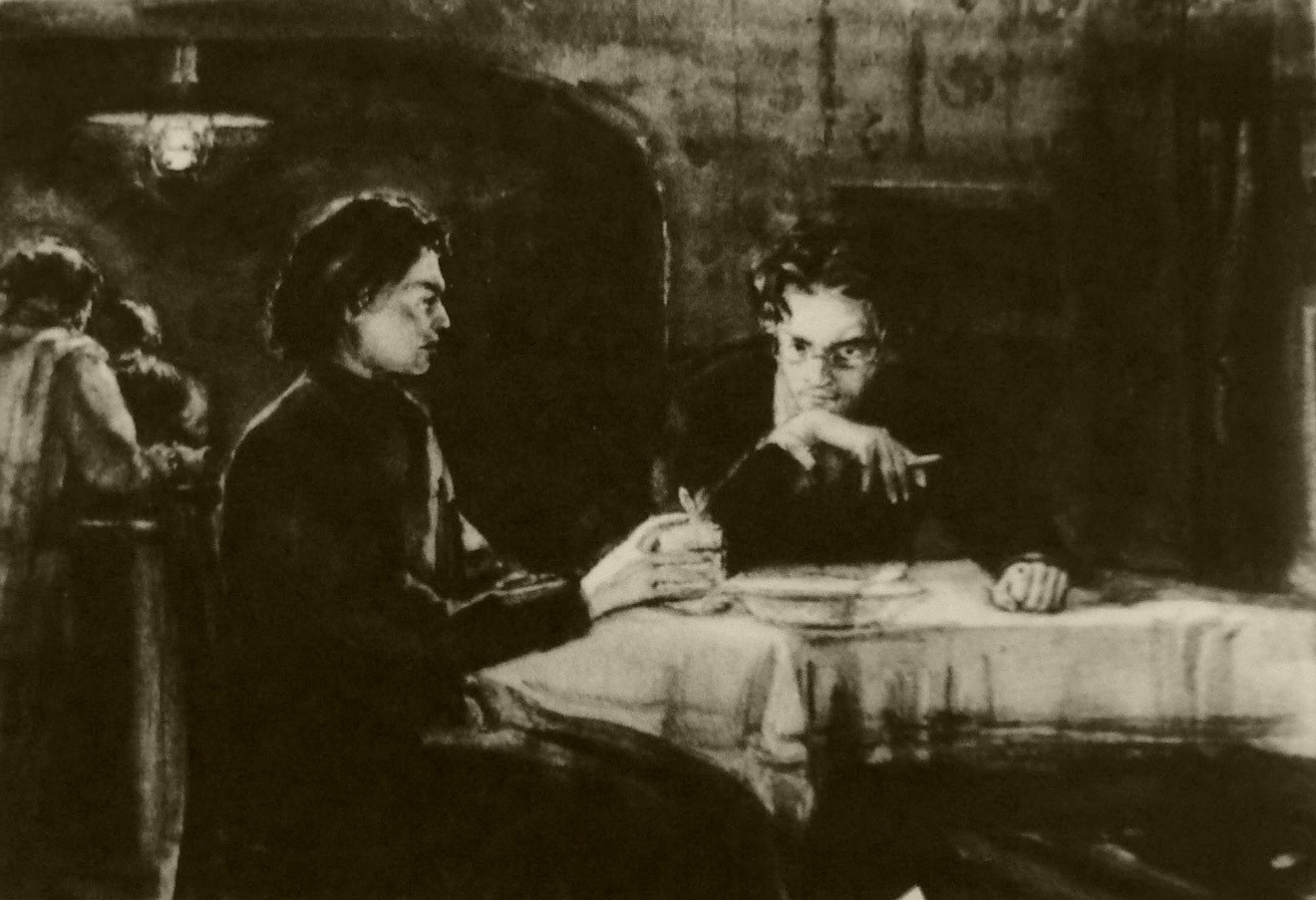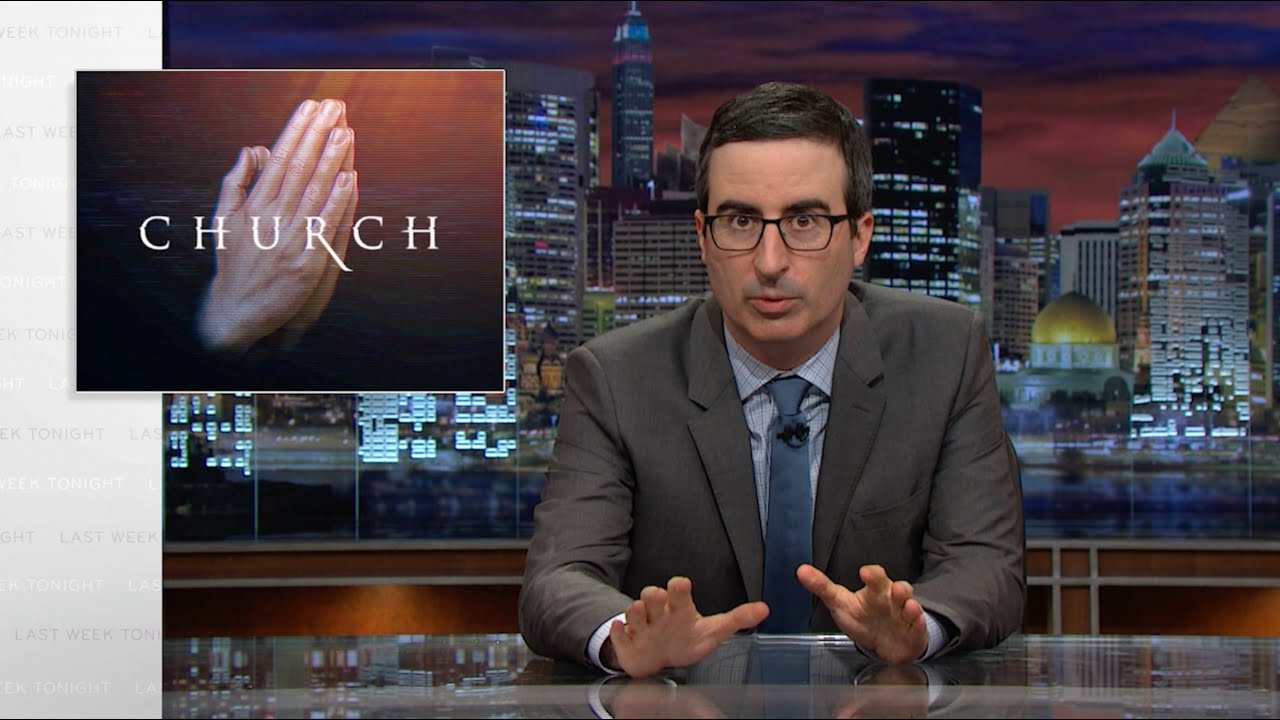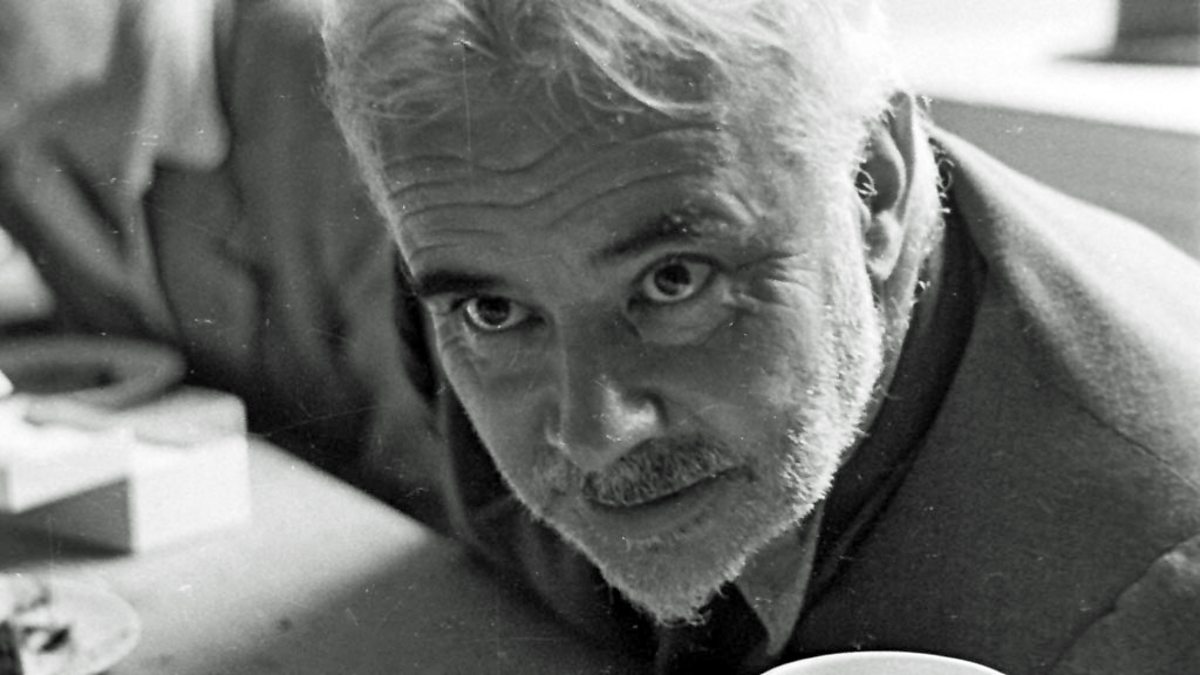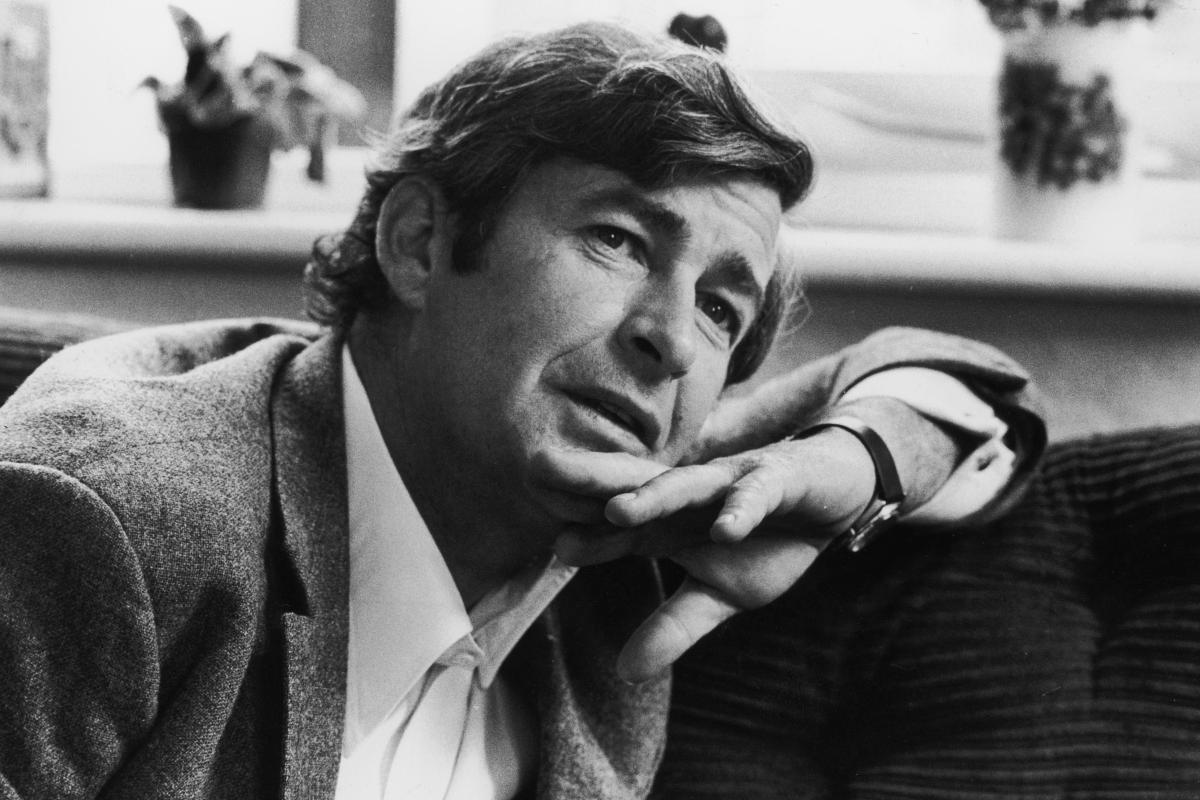Ivan Karamazov and the Rebellion against God
by Albert Camus
If the romantic rebel extols evil and the individual, this does not mean that he sides with mankind, but merely with himself. Dandyism, of whatever kind, is always dandyism in relation to God. The individual, in so far as he is a created being, can oppose himself only to the Creator. He has need of God, with whom he carries on a kind of a gloomy flirtation. Armand Hoog1 rightly says that, despite its Nietzschean atmosphere, God is not yet dead even in romantic literature. Damnation, so clamorously demanded, is only a clever trick played on God. But with Dostoevsky the description of rebellion goes a step farther. Ivan Karamazov sides with mankind and stresses human innocence. He affirms that the death sentence which hangs over them is unjust. Far from making a plea for evil, his first impulse, at least, is to plead for justice, which he ranks above the divinity. Thus he does not absolutely deny the existence of God. He refutes Him in the name of a moral value. The romantic rebel’s ambition was to talk to God as one equal to another. Evil was the answer to evil, pride the answer to cruelty. Vigny’s ideal, for example, is to answer silence with silence. Obviously, the point is to raise oneself to the level of God, which already is blasphemy. But there is no thought of disputing the power or position of the deity. The blasphemy is reverent, since every blasphemy is, ultimately, a participation in holiness.
With Ivan, however, the tone changes. God, in His turn, is put on trial. If evil is essential to divine creation, then creation is unacceptable. Ivan will no longer have recourse to this mysterious God, but to a higher principle[55] —namely, justice. He launches the essential undertaking of rebellion, which is that of replacing the reign of grace by the reign of justice. He simultaneously begins the attack on Christianity. The romantic rebels broke with God Himself, on the principle of hatred. Ivan explicitly rejects the mystery and, consequently, God, on the principle of love. Only love can make us consent to the injustice done to Martha, to the exploitation of workers, and, finally, to the death of innocent children.
“If the suffering of children,” says Ivan, “serves to complete the sum of suffering necessary for the acquisition of truth, I affirm from now onward that truth is not worth such a price.” Ivan rejects the basic interdependence, introduced by Christianity, between suffering and truth. Ivan’s most profound utterance, the one which opens the deepest chasms beneath the rebel’s feet, is his even if: “I would persist in my indignation even if I were wrong.” Which means that even if God existed, even if the mystery cloaked a truth, even if Zosime were right, Ivan would not admit that truth should be paid for by evil, suffering, and the death of innocents. Ivan incarnates the refusal of salvation. Faith leads to immortal life. But faith presumes the acceptance of the mystery and of evil, and resignation to injustice. The man who is prevented by the suffering of children from accepting faith will certainly not accept eternal life. Under these conditions, even if eternal life existed, Ivan would refuse it. He rejects this bargain. He would accept grace only unconditionally, and that is why he makes his own conditions. Rebellion wants all or nothing. “All the knowledge in the world is not worth a child’s tears.” Ivan does not say that there is no truth. He says that if truth does exist, it can only be unacceptable. Why? Because it is unjust. The struggle between truth and justice is begun here for the first time; and it will never end. Ivan, by nature a solitary and therefore a moralist, will satisfy himself with a kind of metaphysical Don Quixotism. But a few decades more and an immense political conspiracy will attempt to prove that justice is truth.
In addition, Ivan is the incarnation of the refusal to be the only one saved. He throws in his lot with the damned and, for their sake, rejects eternity. If he had[56] faith, he could, in fact, be saved, but others would be damned and suffering would continue. There is no possible salvation for the man who feels real compassion. Ivan will continue to put God in the wrong by doubly rejecting faith as he would reject injustice and privilege. One step more and from All or Nothing we arrive at Everyone or No One.
This extreme determination, and the attitude that it implies, would have sufficed for the romantics. But Ivan,2 even though he also gives way to dandyism, really lives his problems, torn between the negative and the affirmative. From this moment onward, he accepts the consequences. If he rejects immortality, what remains for him? Life in its most elementary form. When the meaning of life has been suppressed, there still remains life. “I live,” says Ivan, “in spite of logic.” And again: “If I no longer had any faith in life, if I doubted a woman I loved, or the universal order of things, if I were persuaded, on the contrary, that everything was only an infernal and accursed chaos—even then I would want to live.” Ivan will live, then, and will love as well “without knowing why.” But to live is also to act. To act in the name of what? If there is no immortality, then there is neither reward nor punishment. “I believe that there is no virtue without immortality.” And also: “I only know that suffering exists, that no one is guilty, that everything is connected, that everything passes away and equals out.” But if there is no virtue, there is no law: “Everything is permitted.”
With this “everything is permitted” the history of contemporary nihilism really begins. The romantic rebellion did not go so far. It limited itself to saying, in short, that everything was not permitted, but that, through insolence, it allowed itself to do what was forbidden. With the Karamazovs, on the contrary, the logic of indignation turned rebellion against itself and confronted it with a desperate contradiction. The essential difference is that the romantics allowed themselves moments of complacence, while Ivan compelled himself to do evil so as to be coherent. He would not allow himself to be good. Nihilism is not only despair and negation but, above all, the[57] desire to despair and to negate. The same man who so violently took the part of innocence, who trembled at the suffering of a child, who wanted to see “with his own eyes” the lamb lie down with the lion, the victim embrace his murderer, from the moment that he rejects divine coherence and tries to discover his own rule of life, recognizes the legitimacy of murder. Ivan rebels against a murderous God; but from the moment that he begins to rationalize his rebellion, he deduces the law of murder. If all is permitted, he can kill his father or at least allow him to be killed. Long reflection on the condition of mankind as people sentenced to death only leads to the justification of crime. Ivan simultaneously hates the death penalty (describing an execution, he says furiously: His head fell, in the name of divine grace”) and condones crime, in principle. Every indulgence is allowed the murderer, none is allowed the executioner. This contradiction, which Sade swallowed with ease, chokes Ivan Karamazov.
He pretends to reason, in fact, as though immortality did not exist, while he only goes so far as to say that he would refuse it even if it did exist. In order to protest against evil and death, he deliberately chooses to say that virtue exists no more than does immortality and to allow his father to be killed. He consciously accepts his dilemma; to be virtuous and illogical, or logical and criminal. His prototype, the devil, is right when he whispers: “You are going to commit a virtuous act and yet you do not believe in virtue; that is what angers and torments you. The question that Ivan finally poses, the question that constitutes the real progress achieved by Dostoevsky in the history of rebellion, is the only one in which we are interested here: can one live and stand one’s ground in a state of rebellion?
Ivan allows us to guess his answer: one can live in a state of rebellion only by pursuing it to the bitter end. What is the bitter end of metaphysical rebellion? Metaphysical revolution. The master of the world, after his legitimacy has been contested, must be overthrown. Man must occupy his place. “As God and immortality do not exist, the new man is permitted to become God.” But what does becoming God mean? It means, in fact, recognizing that everything is permitted and refusing to[58l recognize any other law but one’s own. Without it being necessary to develop the intervening arguments, we can see that to become God is to accept crime (a favorite idea of Dostoevsky’s intellectuals). Ivan’s personal problem is, then, to know if he will be faithful to his logic and if, on the grounds of an indignant protest against innocent suffering, he will accept the murder of his father with the indifference of a man-god. We know his solution: Ivan allows his father to be killed. Too profound to be satisfied with appearances, too sensitive to perform the deed himself, he is content to allow it to be done. But he goes mad. The man who could not understand how one could love one’s neighbor cannot understand either how one can kill him. Caught between unjustifiable virtue and unacceptable crime, consumed with pity and incapable of love, a recluse deprived of the benefits of cynicism, this man of supreme intelligence is killed by contradiction. “My mind is of this world,” he said; “what good is it to try to understand what is not of this world?” But he lived only for what is not of this world, and his proud search for the absolute is precisely what removed him from the world of which he loved no part.
The fact that Ivan was defeated does not obviate the fact that once the problem is posed, the consequence must follow: rebellion is henceforth on the march toward action. This has already been demonstrated by Dostoevsky, with prophetic intensity, in his legend of the Grand Inquisitor. Ivan, finally, does not distinguish the creator from his creation. “It is not God whom I reject,” he says, “it is creation.” In other words, it is God the father, indistinguishable from what He has created.3 His plot to usurp the throne, therefore, remains completely moral. He does not want to reform anything in creation. But creation being what it is, he claims the right to free himself morally and to free all the rest of mankind with him. On the other hand, from the moment when the spirit of rebellion, having accepted the concept of “everything is permitted” and[59] “everyone or no one,” aims at reconstructing creation in order to assert the sovereignty and divinity of man, and from the moment when metaphysical rebellion extends itself from ethics to politics, a new undertaking, of incalculable import, begins, which also springs, we must note, from the same nihilism. Dostoevsky! the prophet of the new religion, had foreseen and announced it: “It Alyosha had come to the conclusion that neither God nor immorality existed, he would immediately have become an atheist and a socialist. For socialism is not only a question of the working classes; it is above all, in its contemporary incarnation, a question of atheism, a question of the tower of Babel, which is constructed without Gods help, not to reach to the heavens, but to bring the heavens down to earth.”4
After that, Alyosha can, in fact, treat Ivan with compassion as a “real simpleton.” The latter only made an attempt at self-control and failed. Others will appear, with more serious intentions, who, on the basis of the same despairing nihilism, will insist on ruling the world. These are the Grand Inquisitors who imprison Christ and come to tell Him that His method is not correct, that universal happiness cannot be achieved by the immediate freedom of choosing between good and evil, but by the domination and unification of the world. The first step is to conquer and rule. The kingdom of heaven will, in fact, appear on earth, but it will be ruled over by men—a mere handful to begin with, who will be the Caesars, because they were the first to understand— and later, with time, by all men. The unity of all creation will be achieved by every possible means, since everything is permitted. The Grand Inquisitor is old and tired, for the knowledge he possesses is bitter. He knows that men are lazy rather than cowardly and that they prefer peace and death to the liberty of discerning between good and evil. He has pity, a cold pity, for the silent prisoner whom history endlessly deceives. He urges him to speak, to recognize his misdeeds, and, in one sense, to approve the actions of the Inquisitors and of the Caesars. But the prisoner does not speak. The enterprise will continue, therefore, without him; he will be killed.[60] Legitimacy will come at the end of time, when the kingdom of men is assured. “The affair has only just begun, it is far from being terminated, and the world has many other things to suffer, but we shall achieve our aim, we shall be Caesar, and then we shall begin to think about universal happiness.”
By then the prisoner has been executed; the Grand Inquisitors reign alone, listening to “the profound spirit, the spirit of destruction and death.” The Grand Inquisitors proudly refuse freedom and the bread of heaven and offer the bread of this earth without freedom. “Come down from the cross and we will believe in you,” their police agents are already crying on Golgotha. But He did not come down and, even, at the most tortured moment of His agony, He protested to God at having been forsaken. There are, thus, no longer any proofs, but faith and the mystery that the rebels reject and at which the Grand Inquisitors scoff. Everything is permitted and centuries of crime are prepared in that cataclysmic moment. From Paul to Stalin, the popes who have chosen Caesar have prepared the way for Caesars who quickly learn to despise popes. The unity of the world, which was not achieved with God, will henceforth be attempted in defiance of God.
But we have not yet reached that point. For the moment, Ivan offers us only the tortured face of the rebel plunged in the abyss, incapable of action, torn between the idea of his own innocence and the desire to kill. He hates the death penalty because it is the image of the human condition, and, at the same time, he is drawn to crime. Because he has taken the side of mankind, solitude is his lot. With him the rebellion of reason culminates in madness.[61]
NOTES
1 Les Petits Romantiques.
2 It is worth noting that Ivan is, in a certain way, Dostoevsky, who is more at ease in this role than in the role of Alyosha.
3 Ivan allows his father to be killed and thus chooses a direct attack against nature and procreation. Moreover, this particular father is infamous. The repugnant figure of old Karamazov is continually coming between Ivan and the God of Alyosha.
4 These questions (God and immortality) are the same questions that socialism poses, but seen from another angle.
Source: “The Rejection of Salvation,” in The Rebel by Albert Camus, trans. by Anthony Bower. Copyright © 1956 by Alfred A. Knopf, Inc.





1 thought on “THE REJECTION OF SALVATION IN DOSTOEVSKY’S “THE BROTHERS KARAMAZOV””
When I read this chapter in Camus’ book back in 1962, it started my life-long identification with Ivan Karamazov.
I don’t ask: “What would Jesus do?” but: “What would Ivan do?”.
However, even if I decide what Ivan would do, I don’t necessarily act on it. Because Ivan, like his creator Dostoevsky, is a flawed character suffering inner turmoil. And so am I.